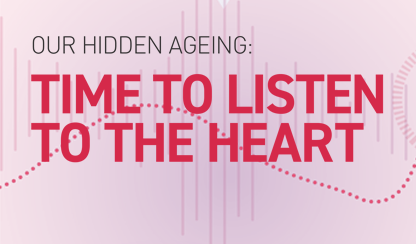What is heart valve disease?
The heart valves are located at the “doorways” of the heart and have a critical role to play in ensuring the flow of blood through the heart. In a lifetime, these valves will open and close more than two billion times. As we age, our blood vessels lose elasticity and become stiff. Aging blood vessels can damage vital organs and place stress on heart valves.
Heart valve disease can cause many serious complications including heart failure, stroke, blood clots and heart rhythm abnormalities.
How many people have heart valve disease in Australia?
About half a million people have heart valve disease, with this figure projected to grow over the next three decades. Perhaps most concerning, is that more than a quarter of a million Australians have undiagnosed heart valve disease.
Symptoms of heart valve disease
A heart murmur diagnosed by a doctor is often the first symptom of heart valve disease. A common symptom is exercise intolerance – which is often misattributed to ‘old age’.
What can you do?
If you’re over 65, ask your doctor to listen to your heart with a stethoscope.
Video: Professor Tom Marwick talks about heart valve disease (41sec)
What are we doing about it?
The Baker Institute's approach to tackling the growing issue of heart valve disease involves:
- Awareness: We are working to increase awareness of heart valve disease, particularly amongst GPs, healthcare and health advocacy groups. Our goal is to make heart health checks – including screening for heart valve disease – routine for everyone aged over 65.
- Policy change: We believe development of national heart valve disease guidelines to facilitate decision-making is critical. We are also advocating for interventions that improve access and equity to treatment.
- Better diagnostics: Developing artificial intelligence-based echocardiography to improve access to this vital tool in heart valve disease diagnosis, and significantly increase diagnosis rates is critical. It is crucial to diagnose people before they present to their GP or hospital emergency department in crisis.
Support the funding of new research in this area.
For more information on heart valve disease, visit our whitepaper Our hidden ageing: time to listen to the heart.



